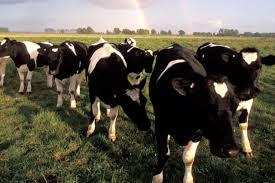Virgin Group founder Richard Branson is the latest high profile celebrity who has announced that he has stopped eating beef.
Branson blogged about this recently saying he learned that the production of beef is harmful to the environment. The Virgin Group’s leader also said he has become slimmer since he gave up on red meat.
Branson’s Beef Backed by Study
Richard Branson’s contention has been supported by a new study that was published in the Proceedings of the National Academy of Sciences that cites that beef production is about 10 times more harmful to the environment compared to any other type of meat production.
In the study, American scientists quantified the environmental inputs needed for beef production. They concluded that beef cattle require 28 times more land compared to pork and poultry, and 11 times more water for irrigation. The scientists were able to come up with a uniform methodology which they applied to five livestock categories.
According to Professor Gidon Ishel of Bard College in New York who was part of the team that conducted the study, their research was able to determine and compare the environmental impact of beef, poultry, pork, dairy, and eggs in various areas like greenhouse gas emissions, nitrogen discharge, and utilisation of land and water resources.
The study also showed that beef cattle releases five times more carbon dioxide to the environment and consumes up to six times more nitrogen. It thus concluded that beef has the biggest impact on the environment amongst food animals known to man.
Ishel added that while they are not expecting governments to bar their citizens from eating beef products like burger, they hope that governments ease their policies that support diets involving animals like cows. He also said that rising prices of beef products could also motivate more people to give up on red meat.
One Meat Free Day
Giving up of red meat may be hard, if not impossible, for many people but experts suggest that observing at least one meat-free day should help in mitigating the negative effects of beef production on the environment.
Dr. Rajendra Pachauri of the UN Intergovernmental Panel on Climate Change advised that people should start observing one-meat free day. He said that this could be a good first step towards reducing the greenhouse gas emissions related to rearing cattle.
Scientists from the University of Cambridge say that reducing red meat consumption could cut back by about 28 million tons the amount of greenhouse gas emissions. They added that on a more personal note, eating less beef dishes can also decrease the risks of chronic diseases by as much as 12 per cent.
Their findings were based on a study made in 2012 which showed that people who regularly ate processed meat turned out to be more at risks of diseases like heart disease and diabetes. The data from the said study also included information provided by the National Diet and Nutrition Survey of British Adults from the period 2000 to 2001.
The researchers argued that even if the data used were more than a decade old, the consumption of red meat has not significantly changed over the past 10 years.



